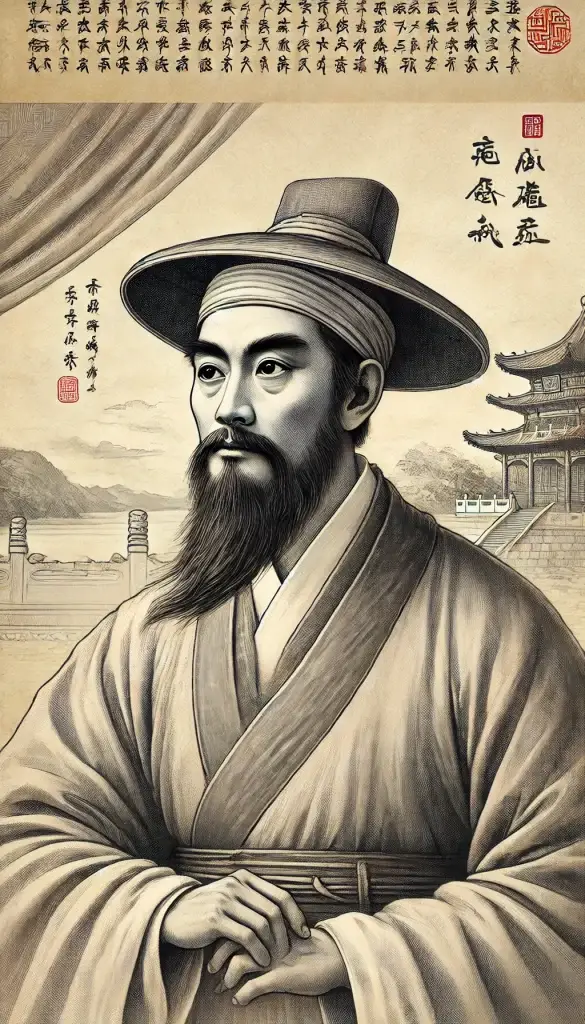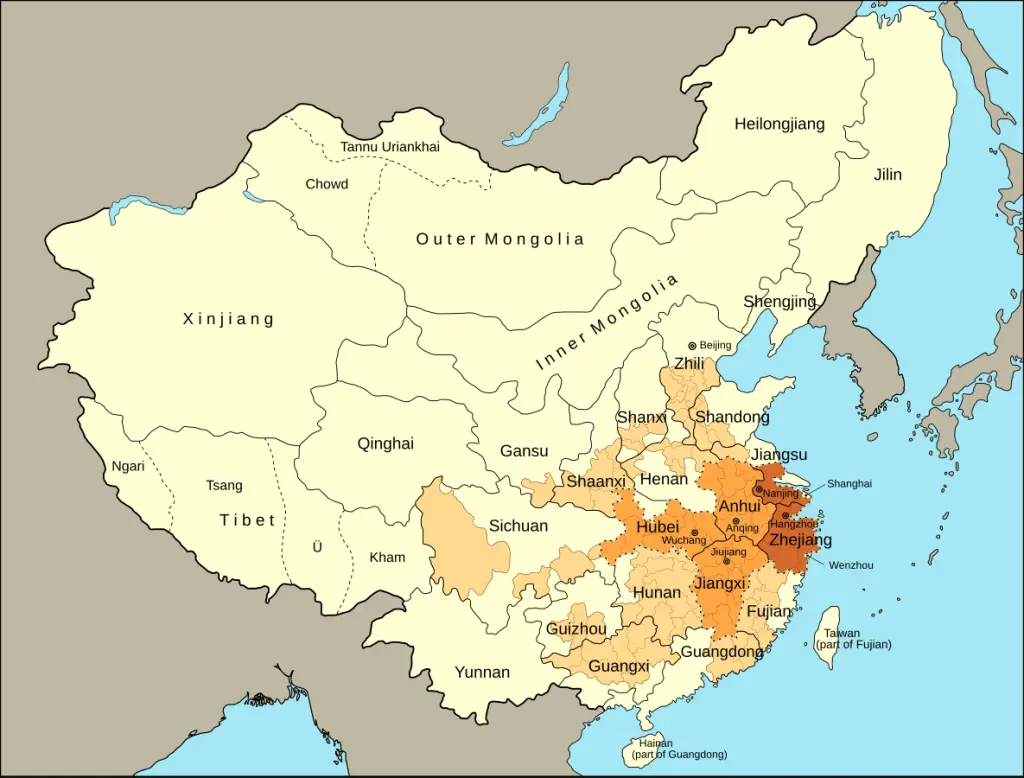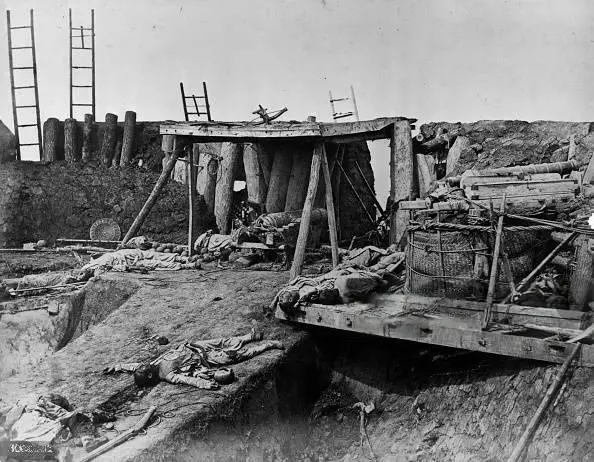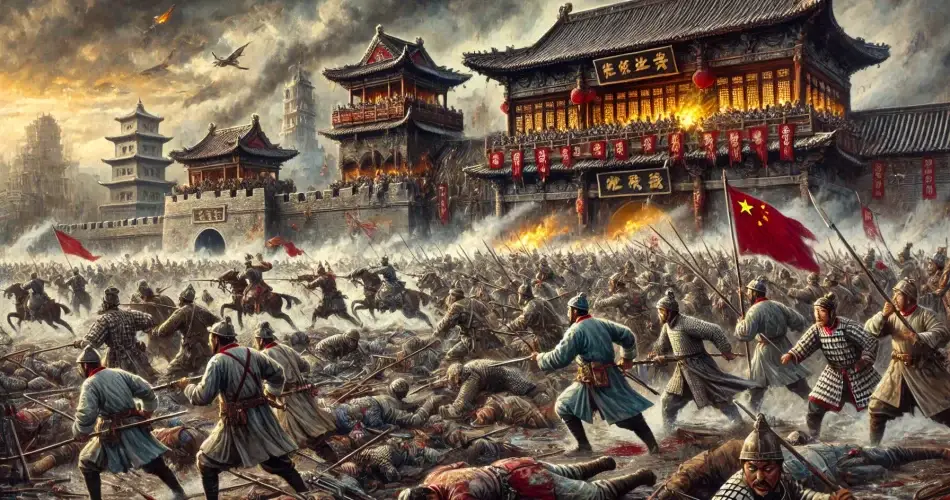It is impossible to study the history of China without getting lost in the dizzying array of revolts, revolutions and rebellions. Some of these rebellions involved only one or two cities, while others were extremely massive, engulfing the entire region of China. However, of all the rebellions that have rocked China throughout its history, the Taiping Rebellion stands out.
The Taiping Rebellion was a radical religious and social uprising against the Mancho Quin dynasty of China. The rebellion lasted for 14 years (1850 -1864), and it caused the death of more than 20 million people in China. Apart from the massive loss of life, the Taiping rebellion also dealt a mortal blow to the Quin dynasty, the last imperial dynasty of China.
What Caused the Taiping Rebellion?
The Qing Dynasty, established by the Manchus in 1644 after overthrowing the Ming Dynasty, was very unpopular among the ethnic Han Chinese, who constituted most of the population. The Han Chinese viewed the Manchus as barbarian invaders who were defiling their culture and subjected them to humiliation. This resentment fueled numerous anti-Qing rebellions even before the Taiping Rebellion began.
Some of these other other rebellions include the Panthay Rebellion, The Dungan Revolt and the Nian Rebellion. These concurrent rebellions reflect the widespread discontent and resistance against Manchu rule across different regions and ethnic groups in China.
Apart from the ethnic differences, the Qing government was plagued by nepotism and infighting, with many corrupt and incompetent officials in positions of power. There was a general neglect of crucial state affairs, notably the riverine and irrigation systems vital for agriculture. As these systems began to fail, the vast Chinese population of approximately 400 million, dependent on them for sustenance, faced starvation and economic crisis.
Finally, the Quin dynasty had recently suffered humiliating defeats in the First and Second Opium Wars (1839 to 1860) and was compelled to sign various humiliating treaties. These treaties imposed heavy indemnities on the Qing government and allowed foreign powers to control key economic centres.
The resulting economic turmoil left the Manchu-led Qing government unable to fulfil its duties to the people during crises, undermining its legitimacy among the population.
Who is Hong Xiuquan?

Hong Xiuquan was born into an ethnic Hakka family in Guandong. He was the youngest son of four children and was considered to be very intelligent in his village. At an early age, he was educated in Chinese and Confucian literature and was prepared to take the civil service examination in the hopes that he would pass the exams and get a position in the Chinese civil service. However, the civil service exams were extremely difficult, and unsurprisingly, despite his best efforts, Hong Xiuquan failed the exams three times.
In 1837, following yet another unsuccessful attempt at the exams, Hong had a severe fever accompanied by delirium and hallucinations. He claimed to have experienced a series of profound visions. In these visions, he saw himself in a heavenly realm, where he was greeted by an old man and a younger man, whom he later identified as God the Father and Jesus Christ.
Hong believed that he was the younger brother of Jesus Christ, divinely chosen to rid the world of demons, whom he interpreted as the ruling Manchu elite of the Qing Dynasty. This revelation gave him a sense of divine mission that would shape the rest of his life.
The Influence of Christianity on Hong’s beliefs grew stronger when he came across Christian missionary tracts. Although he was denied baptism, he began to preach a unique version of Christianity that combined traditional Christian teachings with his own interpretations and elements of Chinese folk religion. Hong saw himself as divinely appointed to rescue China from corruption and oppression and to establish a new, righteous order.
The early Taiping Movement
In the early 1840s, Hong, alongside his neighbour and schoolmate Feng Yunshan, began to attract followers through their preaching. They formed a cult called the Society of God Worshippers. The cult started as a small religious group but quickly grew as they travelled through southern China. Their message resonated particularly with the poor and unemployed people who were happy to get rid of the Manchu government.
By 1850, the Society of God Worshippers had grown into a substantial movement, and Hong Xiuquan declared the formation of the Taiping Heavenly Kingdom. He envisioned this as a new Christian utopia where social equality and justice would prevail. The movement’s core tenets included communal ownership of property, the equality of men and women, and the rejection of Confucianism, Buddhism, and traditional Chinese folk religion in favour of Christianity.
The Taiping forces captured the city of Yongan in 1851, and their numbers swelled as more discontented peasants and marginalized individuals continued to join their cause. The idea of shared property appealed to many poor people who had nothing else to do. By 1853, the rebels had reached several thousand and had captured Nanjing, which they declared their capital, renaming it Tianjing, or Heavenly Capital.
Life in the Taiping “Heavenly Kingdom of Great Peace”

For the common people, daily life was heavily regulated by the religious and social codes of the Taiping regime. The society was organized around communal living, where private property was largely abolished, and land was redistributed to ensure a more equitable distribution of resources. Also, men and women were considered equals, and women were encouraged to participate in the workforce and even military service.
However, this also meant that everyone was subject to strict discipline and harsh punishments for any infractions of the moral code. Alcohol, opium, and tobacco were banned, and traditional religious practices, especially Confucianism, were forbidden in favour of Taiping’s unique version of Christianity.
Since the Taiping state was constantly at war against the Qing Dynasty, the common people were frequently mobilized for military purposes. Able-bodied individuals were expected to contribute to the war effort through direct combat, building fortifications, or other support roles.
In stark contrast to the conservative life of ordinary citizens, the elite within the Taiping Heavenly Kingdom was marked by luxury and privilege. Hong Xiuquan, the self-proclaimed Heavenly King, lived in a lavish palace surrounded by opulence and luxury. He filled his palace with concubines despite the regime’s official stance against polygamy and extramarital relations.
While Hong Xiuquan busied himself with women and other pleasures, the state’s administrative affairs were handled by Hong Xiuquan’s cousin, Hong Rengan, who served as the prime minister in the Taiping Regime.
How the Taiping Rebellion was defeated?
The Attempt on Shanghai
In 1860, at the height of their power, the Taiping forces launched a bold campaign to capture Shanghai. This strategic port city was economically vital and symbolically significant, representing a major stronghold of Qing authority and Western commercial interests.
The Taiping army, under commanders like Li Xiucheng, advanced toward Shanghai with the hope of cutting off a critical lifeline of the Qing Dynasty. However, Shanghai’s defence proved formidable. The resistance was spearheaded by Qing forces bolstered by local militias and foreign troops, including British and French soldiers, intent on protecting their interests and maintaining stability in the region.
The failure to capture Shanghai marked a turning point in the rebellion. Unable to break through the city’s defences, the Taiping forces saw their momentum wane.
The Quin Military Restructuring
The Qing Dynasty, finally recognizing the existential threat posed by the Taiping movement, embarked on a comprehensive military restructuring. Key figures such as Zeng Guofan, Zuo Zongtang, and Li Hongzhang emerged as instrumental leaders in this effort.
They established regional armies, like the Xiang Army and the Huai Army, which were better trained, more disciplined, and more loyal compared to the earlier imperial forces. The regional armies were also easier to manoeuvre since they were independent of one another and could be easily and quickly mobilized to the Taiping attacks.
Western Influence in the Eventual Defeat of the Taiping Rebels
Initially, Western powers like Britain and France were indifferent or even somewhat supportive of the Taiping cause, viewing it as a potential means to weaken the Qing Dynasty and further their interests. However, as the rebellion grew increasingly destructive and chaotic, Western attitudes shifted. The Taiping’s radical social policies and anti-foreigner stance alarmed Western merchants and missionaries. Also, Continued instability threatened the lucrative trade agreements and concessions that the Western powers had secured with the Qing government.
Consequently, Western nations began to provide direct military support to the Qing forces. This included the supply of modern weaponry, military advisors, and even active combat participation. The “Ever Victorious Army,” a mercenary force led by Western officers such as the American Frederick Townsend Ward and later the British Charles George Gordon, became a formidable ally to the Qing Dynasty.
Final Battle at Nanking
In early 1864, Qing forces began their final assault on Nanjing. The city’s defences were formidable, but the prolonged siege and dwindling supplies had taken a severe toll on the Taiping rebels. The Qing army, equipped with modern artillery and bolstered by seasoned soldiers, steadily breached the city’s outer fortifications
Inside Nanjing, the situation grew increasingly desperate. The Taiping leadership was in disarray following the death of their charismatic leader, Hong Xiuquan, in June 1864. Hong’s death, under circumstances shrouded in mystery—some sources suggest illness, others claim suicide—demoralized the Taiping troops and threw their command structure into chaos. His young son, Hong Tianguifu, was named as his successor, but he was too young and lacked the authority to rally the faltering defences.
As the Qing forces tightened their grip, the fall of Nanjing became inevitable. On July 19, 1864, the Qing army launched a final, massive assault on the city. The city finally fell, and the Quin soldiers executed more than 100,000 people in less than five days.
Why did so many people Die during the Nanking Rebellion?

The Taiping rebels believed that the total destruction of the Qing and their supporters was necessary to ensure the success of their new order. The rebels also understood that they would get no mercy if they were captured, and thus, they showed no mercy themselves. Whole cities that fell into the hands of the rebels were often destroyed completely, with entire populations eliminated.
Also, in response to the brutal nature of the Taiping rebels, the Qing military strategy involved not only battling the Taiping forces in open combat but also targeting the civilian populations that supported them. Villages suspected of harbouring Taiping sympathizers were razed, and mass executions were common.
Both sides engaged in scorched-earth tactics, destroying crops, livestock, and infrastructure to deny resources to their enemies. This strategy led to widespread famine, as the agricultural heartlands were laid waste, and food supplies became scarce. Starvation claimed countless lives, adding to the already staggering death toll from the fighting.
Plagues and Diseases also claimed a lot of lives during the rebellion. A lot of people were undernourished and were more likely to succumb to one of the various diseases in the country at this time.
What if the Taiping Rebellion Succeeded?
Had the Taiping Rebellion succeeded, China’s history would have taken a dramatically different path. The overthrow of the Qing Dynasty and the establishment of the Taiping Heavenly Kingdom under Hong Xiuquan would have ushered in a new era marked by radical social, religious, and economic transformations.
A successful Taiping regime would have implemented Hong Xiuquan’s vision of a theocratic and egalitarian society. Although it is difficult to determine how this would have played out, it is safe to say that China as it is today would not have existed.
Politically, a Taiping victory would have fractured China’s relations with the West. The Taiping’s anti-foreign stance and rejection of existing trade treaties would have led to conflicts with Western powers, who had vested interests in maintaining their economic footholds in China. This antagonism could have resulted in military confrontations and further foreign intervention, similar to the Opium Wars.
Finally, maintaining control over the vast and diverse Chinese territory would have been a monumental challenge, potentially leading to regional fragmentation and continuous conflicts in China.
